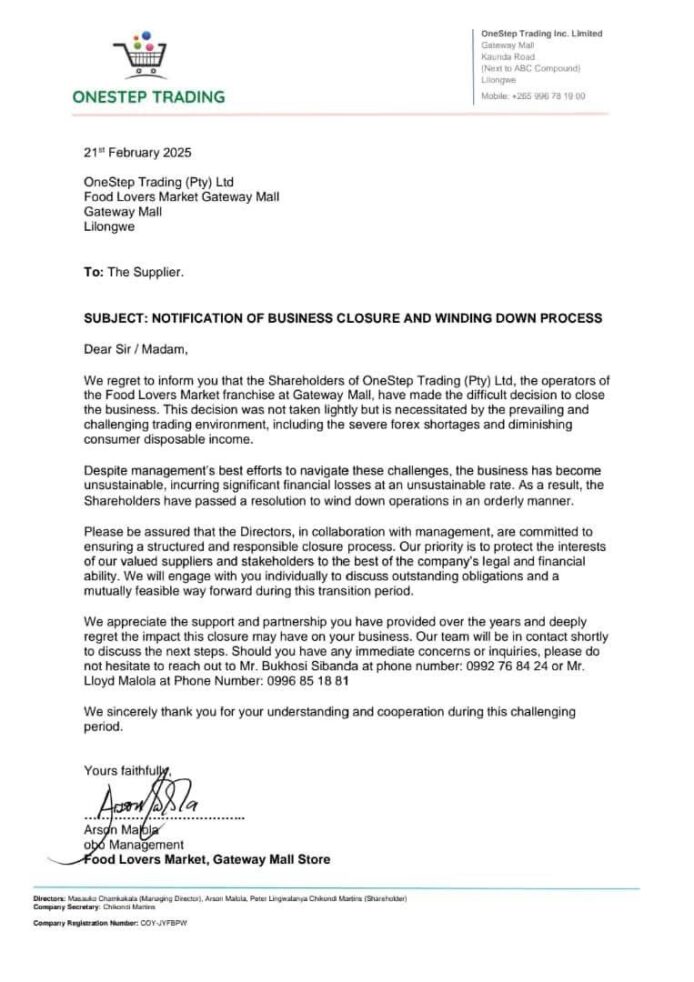By Burnett Munthali
Malawi’s economic downturn is accelerating at an alarming rate, forcing many businesses to shut down due to an increasingly challenging operating environment.
The latest victim of this economic decline is FoodLovers, a well-known urban food retailer, which has announced its closure.
This development is not only a major blow to employees who will lose their jobs but also a significant setback for farmers who relied on the store as a crucial market for their produce.

The closure of FoodLovers highlights the severity of Malawi’s economic crisis.
Over the past few months, businesses across various sectors have struggled to cope with rising operational costs, inflation, and an unpredictable economic climate. Consumers are also feeling the impact as essential goods become unaffordable.
In some parts of the Southern Region, the price of maize, Malawi’s staple food, has skyrocketed to K120,000 per 50kg bag, making it increasingly difficult for families to afford basic necessities.
Despite these dire circumstances, the government has yet to provide a clear and effective plan to stabilize the economy. Minister of Finance Simplex Chithyola Banda and President Lazarus Chakwera have not laid out a comprehensive strategy to address the ongoing crisis.
Their apparent lack of urgency has left many Malawians disillusioned and worried about the future. With businesses shutting down, unemployment rising, and inflation soaring, the government’s inaction is fueling frustration among citizens who demand immediate intervention.
Economic experts warn that if the government does not take decisive action soon, more companies will collapse, leading to an even deeper financial crisis.
The closure of businesses like FoodLovers serves as a warning sign of what lies ahead.
Small-scale farmers, who are already struggling, now face the risk of losing their primary source of income as the market for their produce continues to shrink.
To mitigate the crisis, policymakers must implement urgent measures to stabilize the economy.
These include offering financial relief to struggling businesses, controlling inflation through sound fiscal policies, and ensuring that essential goods remain affordable for ordinary Malawians.
Additionally, a transparent and detailed economic recovery plan is needed to restore investor confidence and prevent further economic deterioration.
As the country grapples with these economic hardships, the pressing question remains:
Will the government rise to the occasion and implement solutions, or will Malawi continue to plunge deeper into financial distress?
The fate of businesses, workers, and farmers hangs in the balance, and the time for action is now.



